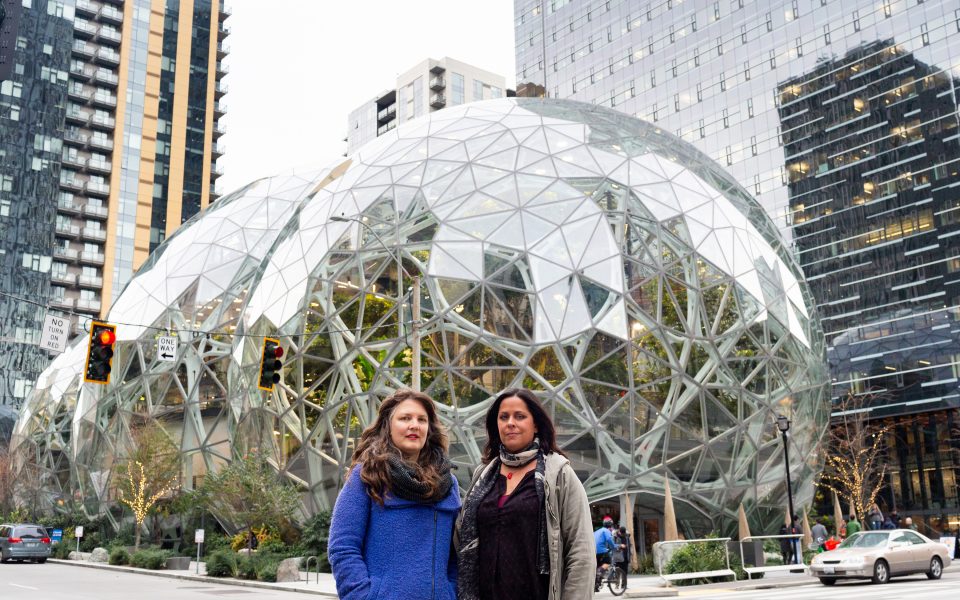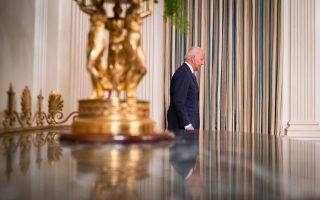Amazon settles with activist workers who say they were illegally fired

Amazon has settled with two of its most prominent internal critics, staving off a public hearing over accusations that the company illegally fired the pair, lawyers for the parties told an administrative judge on Wednesday.
The former employees, Emily Cunningham and Maren Costa, said in a statement that Amazon would be required to pay their back wages and “post a notice to all of its tech and warehouse workers nationwide that Amazon can’t fire workers for organizing and exercising their rights.” They called the settlement “a win for protecting workers rights.”
The pair have said they were fired last year because they publicly pushed the company to reduce its effect on climate change and address concerns about its warehouse workers. Amazon has maintained that the former employees repeatedly broke internal policies.
An Amazon spokesperson, Jose Negrete, said Wednesday, “We have reached a mutual agreement that resolves the legal issues in this case and welcome the resolution of this matter.”
The settlement was reached at a high-wire moment for Amazon, which has pledged to be “Earth’s best employer” and is looking, in a tight labor market, to hire 40,000 corporate and tech workers and 125,000 warehouse workers in the United States.
In 2018, Costa and Cunningham, who worked as designers at Amazon’s Seattle headquarters, were part of a small group of employees who publicly pushed the company to do more to address its climate impact. They turned their efforts into an organization, Amazon Employees for Climate Justice, and helped get more than 8,700 Amazon colleagues to support its efforts.
Over time, Cunningham and Costa broadened their protests. After Amazon told them that they had violated its external-communications policy by speaking publicly about the business, their group organized 400 employees to also speak out, purposely violating the policy to make a point.
At the start of the pandemic, they announced an internal event for warehouse workers to speak to tech employees about their workplace safety conditions. Soon after, Amazon fired both women. Sen. Elizabeth Warren, D-Mass., wrote Amazon expressing concerns over potential retaliation, and Tim Bray, an internet pioneer and a former vice president at Amazon’s cloud computing group, resigned in protest.
This spring, lawyers with the National Labor Relations Board said they had found merit in Costa and Cunningham’s accusations that they were fired in retaliation for their organizing. The agency’s Seattle office then brought a case against Amazon, saying the company “enforced its facially neutral External Communications and Solicitation policies selectively and disparately in order to restrict employees from engaging in protected, concerted activities.”
The hearing was scheduled to start Tuesday morning, but was delayed as the parties worked on a settlement.
The case is one of many tangles the company has had with the labor board since the start of the pandemic. Most visibly, in August, a hearing officer of the NLRB recommended that the agency throw out a union election at an Amazon warehouse in Bessemer, Alabama, finding that Amazon’s “conduct interfered with the laboratory conditions necessary to conduct a fair election.” Amazon denies any interference and has vowed to appeal if the regional office of the labor board agrees with the recommendation and formally overturns the election, which rejected the union.
[This article originally appeared in The New York Times.]






